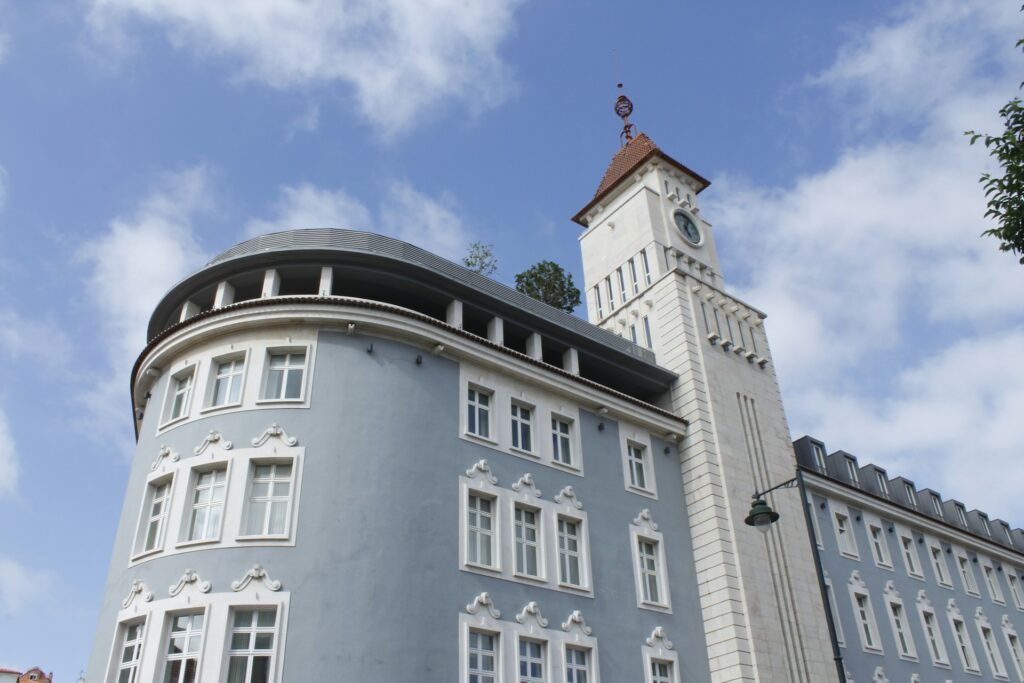Taxation is an essential aspect of expat life in Portugal, and understanding the intricacies of the tax system is crucial for a smooth transition.
In this comprehensive guide, we provide expats with a detail overview of the tax system in Portugal, equipping them with the knowledge and tools necessary to navigate their tax obligations and make informed financial decisions.
Taxes in Portugal Overview
The Tax system in Portugal is a multifaceted structure that serves as the foundation for generating revenue to fund public services, support social welfare programs, and finance essential infrastructure projects.
It operates on the principle of fairness and aims to distribute the tax burden in a progressive manner. At its core, the tax system in Portugal consists of various components that encompass both personal and corporate taxation.

Who needs to pay taxes in Portugal
In Portugal, your tax obligations depend on whether you’re considered a tax resident. You’re generally classified as a tax resident if you spend more than 183 days in the country during any 12-month period—these days don’t have to be consecutive.
Alternatively, if you maintain a home in Portugal that suggests it’s your main and habitual residence, that also qualifies you as a tax resident.
Once you become a tax resident, you’re liable to pay tax on your worldwide income, meaning income earned both in Portugal and abroad.
If you don’t meet these conditions, you’re treated as a non-resident, and only your Portugal-sourced income—such as rental income, capital gains, or local employment—is subject to Portuguese tax.
Portugal Taxes for Expats
The Portugal NHR 2.0
The IFICI, often referred to as the “Non-Habitual Resident 2.0” regime, is a special tax framework introduced in 2024. It offers tax incentives to highly qualified professionals who choose to establish their fiscal and permanent residence in Portugal, as outlined in the Personal Income Tax Code (CIRS).
This regime is available to individuals engaging in eligible, highly skilled professional activities within Portugal, as specified by the relevant legislation and an upcoming Ministerial Order, which the Portuguese government is yet to issue.
The IFICI regime is governed by Article 58-A of the Tax Benefits Statute (EBF).
You may would like to read our Comprehensive Guide of the NHR Tax Regime for foreigners.
How to fill your Portugal tax declaration
If you are an expat living in Portugal, obtaining a Número de Identificação Fiscal (NIF) is indeed necessary before you can file your tax return. The NIF serves as your tax identification number and is required to fulfill your tax obligations in Portugal.
In Portugal, taxpayers are required to file an annual tax return, known as the “Modelo 3,” to report their income, deductions, and tax liabilities. The filing requirement applies to both residents and non-residents who have taxable income in Portugal.
Individuals must report their worldwide income if they are tax residents in Portugal, while non-residents only need to report their Portuguese-sourced income.
The deadline for filing the annual tax return in Portugal is typically set for the end of June each year, covering the income earned in the previous calendar year.
Portugal provides an online tax filing system called “Portal das Finanças” (Tax Authority Portal), which allows taxpayers to submit their tax returns electronically.
Late filing penalties in Portugal can range from €200 to €2,500.

Income Taxes in Portugal
Income tax, known as “Imposto sobre o Rendimento das Pessoas Singulares” (IRS), is applicable to individuals’ income from various sources, including employment, self-employment, pensions, and investments.
The income tax system in Portugal operates on a progressive scale with different tax brackets and rates based on income levels.
Deductions, allowances, and tax credits are available to reduce the taxable income.
Corporate Tax in Portugal
Corporate tax, known as “Imposto sobre o Rendimento das Pessoas Coletivas” (IRC) stands at a standard rate of 21%.
This rate applies to the taxable profits of both resident and non-resident companies that operate within the country.
It is important to note that this rate is considered relatively competitive within the European Union. However, Portugal also offers certain tax incentives and provisions that can impact the effective tax rate for companies.
For instance, small and medium-sized enterprises (SMEs) have the opportunity to benefit from a reduced corporate tax rate.
SMEs with taxable profits up to €25,000 (for standalone entities) or €50,000 (for entities within a group) can qualify for a reduced rate of 17%.
Furthermore, Portugal provides tax incentives to foster innovation and research & development (R&D) activities. Companies engaged in qualifying R&D projects can benefit from a deduction of up to 32.5% of the R&D expenses incurred.
VAT Tax in Portugal
Value-Added Tax, known as “Imposto sobre o Valor Acrescentado” (IVA), is a consumption tax levied on most goods and services in Portugal.
The standard VAT rate in Portugal is 23%. This rate applies to most goods and services that are not eligible for reduced rates or exemptions. It is the rate that is commonly applied to everyday consumer purchases.
However, Portugal also applies reduce VAT rates to specific categories of goods and services. The intermediate VAT rate is set at 13% and applies to certain items such as restaurant and catering services, agricultural inputs and supplies, domestic fuel and energy, water supply, and non-prescription medications and medical products.
There is also a reduced VAT rate of 6% that applies to a range of goods and services, including basic foodstuffs like bread, cereals, meat, fish, fruits, and vegetables. Also books, newspapers, and magazines, hotels and similar accommodations, passenger transportation services, museums, cultural events, and sporting activities.
In addition to these VAT rates, there are certain goods and services that are exempt from VAT in Portugal. Exempt categories include medical and healthcare services, education and training services, financial services, and rental of residential properties.

Expat Taxes in Portugal: Property Owners
Municipal Property Tax (IMI)
The Municipal Property Tax (IMI) is an annual tax imposed on the ownership of real estate properties in Portugal. This tax is levi by local municipalities and is based on the taxable value of the property.
Also the taxable value is determined by the Portuguese tax authority (AT) and takes into account factors such as the property’s location, type, size, and market value.
The IMI rates can vary depending on several factors, including the type of property, its location, and the tax regulations set by each municipality.
And the rates typically range from 0.3% to 0.45% for urban properties and 0.8% for rural properties. Municipalities have the autonomy to establish their own IMI rates within the legal limits.
Municipal Property Transfer Tax (IMT)
The Municipal Property Transfer Tax (IMT) is a tax imposes on property transactions, such as the purchase or transfer of real estate in Portugal.
IMT is a one-time tax pay by the buyer of the property and is calculates base on the purchase price or the property’s market value, whichever is higher.
And the IMT rates are progressive and vary depending on the property value and type.
This rates range from 1% to 8% for residential properties and can reach up to 6.5% for commercial properties.
There are also 3 main criteria’s that has influence the IMT calculation:
- Urban property vs. rural property
- Property is in Mainland vs. islands (Madeira or Azores).
- Primary residency vs secondary home
Annual wealth property Tax (AIMI)
AIMI stands for “Adicional ao Imposto Municipal de Imóveis” which translates to Additional Municipal Property Tax.
It is an annual property tax in Portugal that is levi on the combined fiscal value of all residential properties own by a taxpayer as of January 1st of each year worth above €600.000.
There are three levels of AIMI Tax in Portugal:
- 7% on properties valued between €600,000 and €1M
- 1,0% on properties valued between €1M and €2M
- 1,5% if the total properties value is over €2 million
Taxes on Portugal Rental Income
If you rent out the property, you’ll need to pay income tax on the rental income generates. There is a flat tax rate of 28%.
Various expenses related to the rental activity can deduct from the gross rental income to determine the taxable income.
Common deductible expenses include property management fees, repairs and maintenance costs, insurance premiums, local property taxes (IMI), financing costs such as loan interest, and other relevant expenses like advertising and professional fees.
Taxpayers are requires to report their rental income annually to the Portuguese tax authorities through the tax return process.
Non-resident individuals may have the option to be taxed under the Non-Habitual Resident (NHR) regime or applicable tax treaties.

Inheritance Tax in Portugal
In Portugal, there is no specific inheritance tax, known as “Imposto sobre as Sucessões e Doações,” imposed on the transfer of assets to beneficiaries upon an individual’s death.
Unlike some other countries, Portugal does not levy a tax based on the value of the inherited assets or the estate left behind.
Instead, Portugal applies stamp duty, known as Imposto do Selo, which is a tax on certain legal acts and documents, including property transfers.
When beneficiaries receive inherite property, they may be subject to stamp duty on the transfer of ownership or the execution of the inheritance deed.
The exact rate of stamp duty can vary depending on various factors, including the nature of the property and the specific circumstances of the transfer.
The rates generally range from 0.8% to 10% or more, depending on the situation.
Social Security Contributions
Social security contributions, known as “Contribuições para a Segurança Social,” are mandatory payments made by employees and employers to fund social security benefits in Portugal.
The contributions provide access to healthcare, pensions, unemployment benefits, and other social welfare programs.
Employees in Portugal contribute to social security at a rate of 11% of their gross salary. This amount is automatically deducted from their monthly wages, helping fund social security programs and services.
Employers also have a responsibility to contribute to social security on behalf of their employees. The employer’s contribution rate is 23.75% of the employee’s gross salary. This contribution is separate from the employee’s deduction and is paid directly by the employer to support the social security system.

Tax deductions and exemptions
Tax deductions in Portugal provide individuals and businesses with opportunities to reduce their taxable income and lower their overall tax liability.
These deductions are designed to incentivize certain behaviors, support specific expenses, and promote economic growth.
For individuals, common tax deductions in Portugal include personal deductions based on marital status and dependents, education expenses like tuition fees and scholarships, health expenses such as medical treatments and insurance premiums, pension contributions, mortgage interest payments, and donations to charitable organizations.
Businesses can also benefit from various deductions, including deductions for business-related expenses like rent, office supplies, professional services, and travel expenses. Additionally, businesses may be eligible for deductions related to energy efficiency investments or specific industry incentives.
Double Taxation Agreements
Portugal has entered into tax treaties with various countries to prevent double taxation on income earned by individuals and businesses operating internationally.
These tax treaties establish rules to allocate taxing rights between countries, provide mechanisms for eliminating double taxation, and offer tax credits for taxes paid in the other country.
To avoid double taxation, individuals and businesses can claim tax relief under the provisions of tax treaties.
This typically involves providing evidence of tax residency, submitting relevant documentation, and following the specific procedures outlined in the applicable tax treaty.
Taxpayers may be eligible for exemptions, reduced tax rates, or tax credits, depending on the provisions of the tax treaty and the nature of their income.

Expat Taxes in Portugal: Compliance Notes
Penalties for tax evasion
Failure to comply with tax filing and payment obligations in Portugal may result in penalties and interest charges.
Penalties can vary depending on the severity of the non-compliance, including late filing, late payment, or failure to report income accurately.
It is essential to meet the tax deadlines and ensure accurate reporting to avoid unnecessary penalties and potential tax audits.
Tax audits in Portugal
Tax audits are conducted by the Portuguese Tax Authority to verify the accuracy and compliance of taxpayers’ tax returns and financial records.
Also tax audits can be randomly selected or triggered by specific risk factors or anomalies identified by the tax authority.
During an audit, tax officials may request additional documentation, perform on-site inspections, and conduct interviews to assess the taxpayer’s compliance with tax regulations.
It is important to maintain accurate records and ensure transparency in tax-related matters to minimize the risk of tax audits.
Tax dispute in Portugal
If taxpayers disagree with the results of a tax audit or receive an unfavorable tax assessment, they have the right to appeal the decision.
The appeals process involves submitting a formal complaint to the tax authority and presenting supporting evidence to contest the assessment.
This tax authority will review the appeal and issue a decision. If the taxpayer remains dissatisfied with the outcome, they can further appeal to the Tax Arbitration Court or the judicial system, depending on the nature and complexity of the case.
The Portuguese Tax Authority
The Portuguese Tax and Customs Authority (Autoridade Tributária e Aduaneira) is the government agency responsible for administering and enforcing tax laws in Portugal. It serves as a valuable resource for taxpayers, providing official guidance, forms, and publications related to tax matters.
And this tax authority’s website offers comprehensive information on various tax topics, including guidelines for tax filing, FAQs, and updates on tax legislation. Taxpayers can access the tax authority’s services online, including filing tax returns, making payments, and communicating with tax officials.

Why choose Portugal Residency Advisors?
Local Expertise
We know Portugal. Due to our extensive local knowledge, we believe that concentrating our services in a single country destination is the best way to give you the most thorough and useful information.
Holistic Approach
One single channel of communication for the entire process. And we provide you with a comprehensive service that covers all aspects of your move, from identifying the ideal residency visa to finding your new home or helping you to settle.
Transparent Service
We recommend what’s best for you based on an extensive process experience that saves time and money to clients. Our pricing is clear and competitive, and we don’t sell services that make us more money.
Simple Process
Technology plays a very important role in our company. We minimize our clients’ involvement in paperwork. Also we are customers ourselves and we know how to serve you.
Frequently Asked Questions About Taxes in Portugal
What is the tax year in Portugal?
The tax year in Portugal follows the calendar year, running from January 1st to December 31st.
Who is considered a tax resident in Portugal?
Individuals who spend more than 183 days in Portugal within a 12-month period or have a residence in Portugal with the intention of maintaining it as their habitual residence are generally considered tax residents in Portugal.
How is personal income tax calculated in Portugal?
Personal income tax in Portugal is calculates using a progressive tax rate system. The rates range from 14.5% to 48%, depending on the income bracket.
Are there any tax deductions available for individuals in Portugal?
Yes, Portugal offers various tax deductions and allowances, such as deductions for health expenses, education expenses, and pension contributions. These deductions can help reduce the taxable income and the overall tax liability.
What is the value-added tax (VAT) rate in Portugal?
Portugal has different VAT rates. The standard rate is 23%, while reduced rates of 6% and 13% apply to specific goods and services, such as essential food items, certain medical supplies, and cultural events.
How is corporate income tax calculated in Portugal?
Corporate income tax in Portugal is currently set at a flat rate of 21%.
Is there an inheritance tax in Portugal?
No, Portugal abolishe inheritance tax in 2004. However, stamp duty may apply to certain transfers of property or assets.




